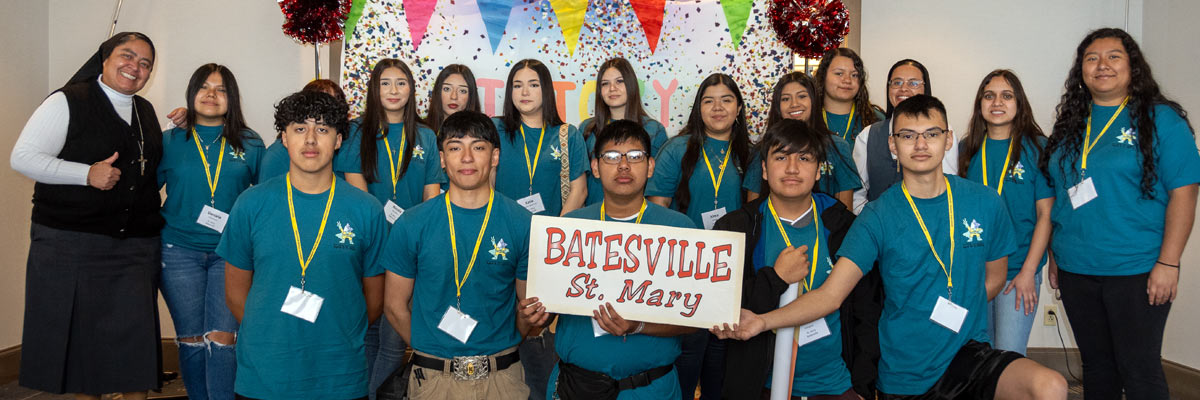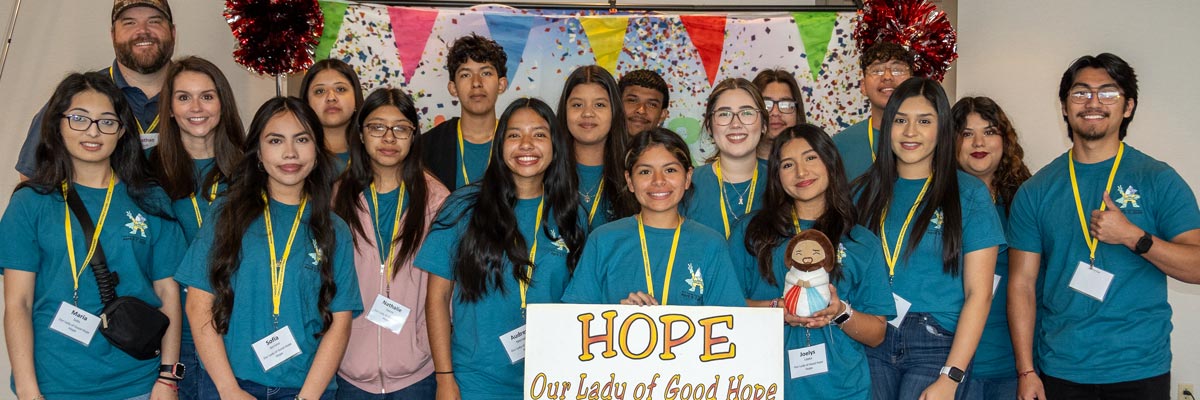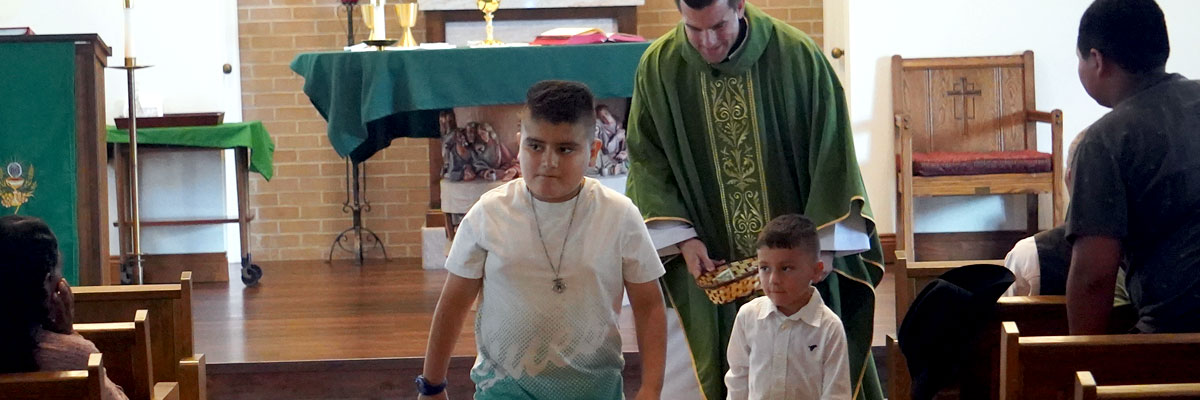Official Website of the
Catholic Diocese of Little Rock
12th Sunday in Ordinary Time, Year B
Published: June 21, 2015
Bishop Anthony B. Taylor preached the following homily during the confirmation Mass at St. Bernard Church in Bella Vista Sunday, June 21, 2015.

Bishop Taylor
In today's Gospel Jesus calms a storm. Today that storm might have been due to global warming as Pope Francis suggests in his wonderful encyclical letter “Laudato Si’” (“Praise Be to You”). In any case this storm was life-threatening and Jesus intervened to save his disciples, which caused them to begin to look at the world in a whole new way.
They found this quite unsettling, in part because it raised questions that contradicted how they had always thought of things to that point. "Who is this whom even the wind and sea obey?" A Messiah who concerns himself with the forces of nature, with things of this world? A Messiah who takes a personal interest in the welfare of 12 men trying to cross dangerous water to a place of safety on the other shore?
Conventional wisdom said that the Messiah would gather an army and run out the Romans. But the Jesus we encounter in the Gospels plays by different rules. He gives priority to the needs of the poor and weak and leaves the powerful sputtering with rage because he speaks truths that run counter to their own perceived vested interests. This is a Messiah whom the winds and seas obey, but he doesn't just calm storms; he also unleashes storms of controversy in order to set people free.
"Laudato Si" asks very good questions about the world economy as currently structured in which market forces prevail in such a way as to make a few people and nations very rich and leave the vast majority of humanity in poverty.
On Thursday Pope Francis issued a controversial letter on the environment and you can already see in the news that some people find the truths contained therein to be very threatening because they challenge a way of doing things that has served their own interests very well, albeit to the detriment of the majority of the people living on this planet.
I would like to encourage you to read the entire encyclical and see for yourself what the Holy Father is saying. His message is wide-ranging and comprehensive, and so cannot be adequately conveyed in a brief homily like this one or in the brief news reports we get in the media, which tend to pick up on controversial details — of necessity, out of context — that they think will be of interest to their viewers. But let me share a couple of things to keep in mind as you consider the points Pope Francis makes:
1.) Ecology is not just a political and economic issue. It is also a moral issue and Pope Francis is giving moral guidance rooted in standard Catholic teachings about care for others and care for God's creation. Environmental degradation affects the poor and vulnerable most, for instance forcing many people to migrate across the Mediterranean from lands whose agricultural production has declined due to climate change, and this is only going to get worse. What kind of world do you want to leave your children and grandchildren? This is also about helping them.
2.) Integral ecology. Catholic theology has much to contribute to this issue because we understand how human ecology (protecting human life and dignity from conception, through all of life, to natural death) is of necessity linked to natural ecology (caring for God's creation). We are called to cooperate with God's design for the world and when we understand the relationship between defending human life and protecting the natural world, we grow closer to God.
3.) The "throwaway culture". "Laudato Si" asks very good questions about the world economy as currently structured in which market forces prevail in such a way as to make a few people and nations very rich and leave the vast majority of humanity in poverty. The West's addiction to excessive consumption of the world's resources is unsustainable, disproportionate, creates tremendous material waste and is destructive of the human dignity. We need to find ways to reduce the number of those being excluded from decent jobs, decent housing and decent healthcare and to do this as good stewards of the creation that God has entrusted to our care.
These points are just a beginning — there's a lot more in this encyclical. Today we are like a boat in a storm. Jesus used a storm to help his disciples see the world in a whole new way and that is exactly what Pope Francis is doing in his authoritative teaching on the environment. Don't just rely on news reports; read the encyclical yourself. It shines the light of the Gospel on the most pressing issues of our day and may help you to see the world in a whole new way as well.









